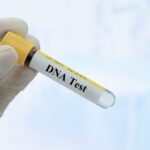When you’ve been injured in an accident, filing a personal injury claim is one of the most important steps you can take to protect your future. But simply filing a claim isn’t enough—you need solid evidence to support your personal injury case. Without documentation that proves fault and illustrates the extent of your injuries, insurance companies and courts may deny or undervalue your claim.
At Klie Law Offices, we help accident victims across West Virginia gather the right evidence and build strong cases. Whether you’re seeking compensation after a car crash, slip and fall, or workplace incident, understanding what evidence is necessary for a personal injury claim is key to protecting your rights and maximizing your recovery.
Why Is Evidence So Important in a Personal Injury Case?
To win a personal injury lawsuit, the injured person (the plaintiff) must prove several key elements:
- The defendant owed a duty of care
- The defendant breached that duty
- The breach caused your injury
- You suffered measurable damages
The burden of proof lies with the plaintiff, which means you must present evidence for your accident injury claim to support these elements. Without clear, organized proof, your case may be dismissed or your injury compensation may be significantly reduced.
Photographic and Video Evidence
Injury photos for insurance claims can be some of the most persuasive pieces of evidence. Visual documentation helps establish the conditions that caused your injury and the severity of the damage.
Be sure to collect:
- Images of the accident scene (from various angles)
- Visible injuries (immediately and over time)
- Vehicle or property damage
- Unsafe conditions (e.g., wet floors, broken handrails)
If available, surveillance footage from nearby cameras can be instrumental in proving fault in a West Virginia personal injury claim.
Medical Records and Bills
One of the strongest ways to link an accident to your injuries is through your medical documentation. Without a clear timeline connecting the event and your treatment, insurers may argue that your injuries aren’t related.
Include:
- Emergency room visits
- Imaging results (X-rays, MRIs)
- Surgical procedures
- Ongoing treatments or physical therapy
- Doctor’s notes and care plans
- Itemized medical bills and out-of-pocket costs
It’s vital to seek care right away—even minor pain could indicate more serious issues that worsen over time.
Police and Incident Reports
If law enforcement or emergency responders were involved, be sure to obtain a police report. These reports provide a neutral, third-party account of the events and may include information such as:
- Contact details for all parties involved
- Witness observations
- Traffic citations or violations
- Officer opinions on who may be at fault
If your injury occurred on a commercial or residential property, request an incident report from the manager or owner. These documents are essential in premises liability claims.
Witness Statements
Having someone else back up your version of events can dramatically boost your claim. Witness statements in a personal injury case often include unbiased accounts that can confirm key details.
Try to collect:
- Names and contact information
- Written or audio-recorded statements
- A summary of what the witness saw
An experienced personal injury law firm in West Virginia, like Klie Law Offices, can follow up with witnesses and obtain formal affidavits for court or settlement negotiations.
Expert Testimony
Some personal injury claims require professional insight to explain technical, medical, or financial issues. We may consult with:
- Medical experts to explain your condition or long-term care needs
- Accident reconstructionists to analyze how a crash occurred
- Vocational experts to prove loss of earning capacity
- Economists to forecast lost income or retirement funds
This type of personal injury documentation supports more complex claims where liability or damages are contested.
Employment and Income Records
To recover lost wages or future income, you’ll need evidence that your injury impacted your work.
Include:
- Pay stubs and tax returns
- Letters from HR or supervisors
- Timesheets and employment history
- Doctor’s work restrictions
This information helps prove economic damages, which may include not only wages already lost but your ability to earn in the future if your injuries are long-term.
Documentation of Pain and Suffering
You may also be entitled to compensation for pain and suffering, which includes physical discomfort, mental anguish, and lifestyle changes.
Keep:
- A daily journal documenting your symptoms, emotions, and limitations
- Letters from mental health professionals or therapists
- Statements from friends or family describing how your life has changed
Proving non-economic damages can be more subjective, but this type of evidence is still critical to a West Virginia personal injury lawsuit.
Insurance Correspondence
All communication with insurers should be preserved, including:
- Emails and letters from insurance adjusters
- Claims forms or denial letters
- Settlement offers
- Notes from phone conversations
At Klie Law Offices, we handle insurance negotiations on your behalf and maintain detailed records to prevent misunderstandings or bad faith tactics from insurers.
Property Damage Evidence
In cases involving cars, bicycles, or personal belongings, you may also need:
- Photos of the damage
- Repair invoices or replacement costs
- Towing or rental vehicle receipts
- Insurance adjuster assessments
These costs are often included in the economic damages of a personal injury case.
How Klie Law Offices Helps You Collect and Protect Evidence
Gathering all this proof for your personal injury lawsuit can feel overwhelming—especially while you’re trying to recover. That’s why working with an experienced legal team is essential.
At Klie Law Offices, we provide comprehensive support by:
- Visiting accident sites and collecting physical evidence
- Interviewing witnesses and securing formal statements
- Obtaining traffic and security camera footage before it’s lost
- Hiring and coordinating with expert witnesses
- Organizing your medical and employment documentation
- Filing your claim before West Virginia’s personal injury statute of limitations expires
The Consequences of Inadequate Evidence
Without the necessary evidence, your injury compensation may be delayed, reduced, or denied altogether. Missing reports, unclear medical records, or insufficient documentation can make it difficult to prove liability or damages.
Don’t leave your future to chance. Working with a trusted personal injury lawyer in West Virginia ensures your evidence is handled correctly from day one.
Contact Klie Law Offices Today
If you or a loved one has been injured due to someone else’s negligence, Klie Law Offices is here to help. With offices in Buckhannon, Parkersburg, Clarksburg, and Morgantown, our team serves injury victims across the state with compassion and dedication.
We understand how to win personal injury claims—and we know what it takes to prove them.
📞 Schedule a free consultation today to discuss your case and get help gathering the evidence necessary for your personal injury claim.
Let us fight for the justice and compensation you deserve.




